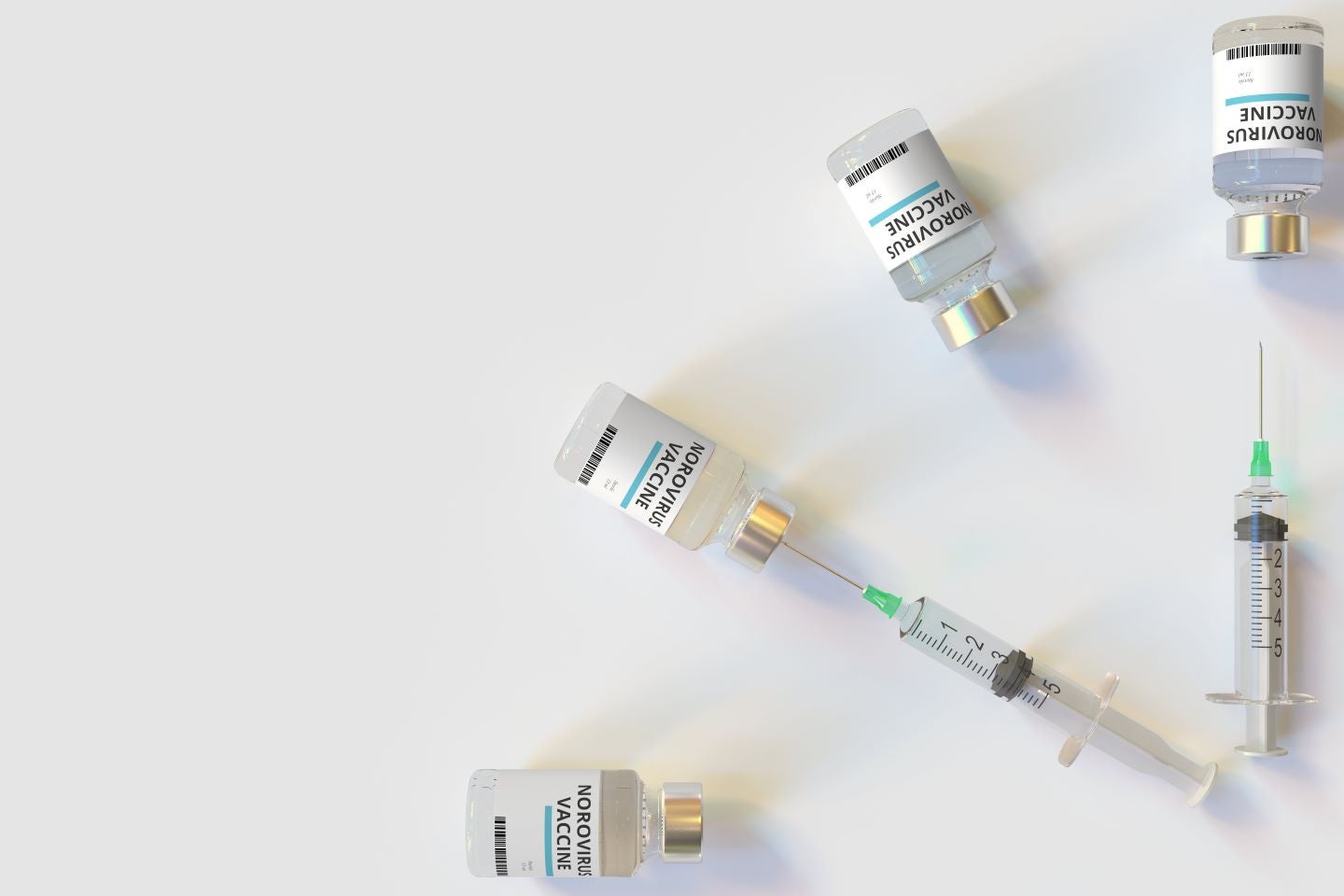At IDWeek 2024, Moderna presented interim results from an ongoing Phase I/II, randomised, observer-blind, placebo-controlled, dose-ranging trial (NCT05992935) for mRNA-1403, a prophylactic vaccine candidate under investigation for norovirus (NoV) infections.
As one of the leading causes of acute gastroenteritis worldwide, NoV is associated with a substantial healthcare burden. Symptoms include vomiting and diarrhoea, which can be severely dehydrating, and the risk of severe outcomes from NoV is greatest in young children and older adults.
To date, no vaccines that protect NoV have been licensed. A key reason for this is the virus’ broad and shifting genotype diversity and limited cross-genotype protection, which poses challenges for the development of an effective vaccine.
Epidemiology data from the past two decades indicates that there are, however, a limited number of prevalent strains and recurring patterns in terms of the strains that circulate. Therefore, a multivalent mRNA vaccine that covers the most prevalent genotypes, and is also amenable to composition updates to address changes in genotype prevalence, may represent a promising strategy.
mRNA-1403 is a trivalent mRNA-based candidate containing three mRNAs that encode for the major capsid protein 1 (VP1) of three globally prevalent NoV genotypes—GII.4, GI.3, and GII.3. In the trial, mRNA-1403 was investigated in healthy younger adults, aged 18–49 years, and older adults, aged 60–80 years. The Phase I part of the trial involved 335 participants. Four different dose levels were investigated in comparison to the placebo, with most participants receiving two intramuscular injections, one month apart. The Phase II part of the trial involved 616 participants. Three different dose levels were investigated in comparison to placebo, with all participants receiving a single intramuscular injection. Notably, across both Phase I and Phase II, older adults accounted for more than 40% of trial participants. Older adults can often be excluded or deterred from participating in clinical trials, due to factors such as increased comorbidities, yet in many cases, they represent the prime target population, as is the case with NoV. For this reason, the strong representation of older adults in the trial is encouraging.
The interim results for safety, reactogenicity, and immunogenicity appear to be promising. No major safety concerns were identified for mRNA-1403 through eight months of follow-up for Phase I and one month of follow-up for Phase II. In the Phase I part of the study, only one participant discontinued the study due to an adverse event (AE) of dermatitis that was considered injection-related. In the Phase II part of the trial, a small number of participants experienced AEs deemed to be injection-related, such as injection-site pain, most of which were classified as mild-to-moderate in severity. No participants discontinued the Phase II part of the trial due to AEs deemed to be injection-related.

US Tariffs are shifting - will you react or anticipate?
Don’t let policy changes catch you off guard. Stay proactive with real-time data and expert analysis.
By GlobalDataFurthermore, mRNA-1403 elicited robust serum HBGA-blocking antibody responses against all three NoV genotypes and across all dose levels. In addition, similar findings for reactogenicity, safety, and immunogenicity were observed for both younger and older adults. The interim data also supported the initiation of a Phase III trial (NCT06592794), which is already underway. The trial is investigating a single dose of mRNA-1403 for the prevention of moderate-to-severe NoV acute gastroenteritis in adults aged 18 years and older.
Alongside mRNA-1403, there are five other NoV vaccine candidates in late-stage development worldwide according to GlobalData’s pipeline product database. These include two candidates in development by Vaxart, one candidate in development by Chongqing Zhifei Biological Products, one candidate in development by Lanzhou Institute of Biological Products, and a second candidate in development by Moderna.






